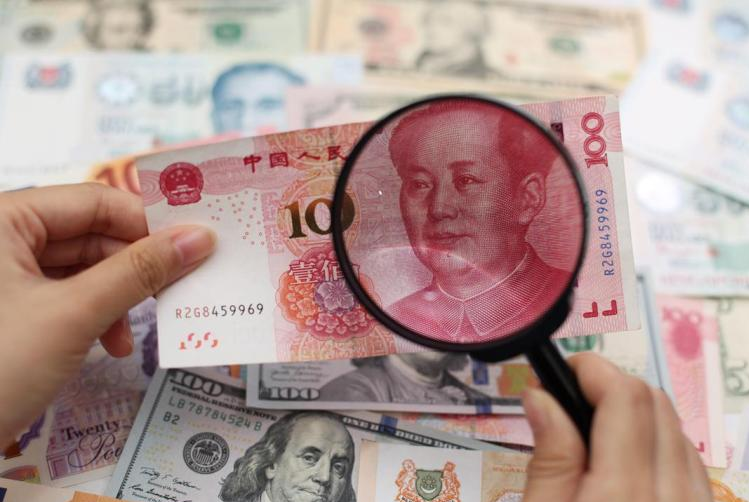
Market participants believe that despite the recent loss of the yen carry trade, the yuan carry trade may be a better defense against currency fluctuations and become an effective strategy.
According to Bloomberg, Royal Bank of Canada said that as the People's Bank of China (central bank) maintains a looser monetary policy, by borrowing yuan, investing in high-return assets will appear more resilient.
The renminbi carry trade differs from the yen carry trade in that it is mostly operated by exporters and multinationals rather than speculators, according to Macquarie Group.
They started to profit only after the Fed raised interest rates in 2022, pushing U.S. borrowing costs above those in China. Since then, Chinese exporters and multinationals have amassed $500 billion.
Second, the renminbi is not fully convertible. In order to control the economy, Chinese officials restrict the flow of foreign exchange, thus automatically reducing the size of the yuan carry trade.
Stephen Chan, head of Asian currency strategy at RBC Capital Markets, argues that it is contradictory to keep the currency strong when the central bank is trying to ease policy, so shorting the yuan against a basket of emerging market currencies still makes sense.
"China's economy is in trouble, and the central bank is widely expected to ease policy in the coming months, and it did signal that," Chen said.
The carry trade, which borrowings yuan and invests in eight emerging-market currencies, returned 0.5% during the quarter, according to data compiled by Bloomberg. In contrast, yen-related carry trades fell 7 per cent.
"Continued ample offshore renminbi liquidity could make it difficult for market participants to resist returning to the carry trade when market volatility abates," says Zhang Weiqin, Asia-Pacific market strategist at Mellon Bank.
However, the total size of the renminbi carry trade is limited by the fact that the PBOC holds tools to avoid much speculative spread deployment. Zhang Weiqin believes that investors have the opportunity to make profits, but the scale will not be significant.
Some financial firms are telling clients that borrowing yuan will continue to be a profitable way to make carry trades. Goldman Sachs and Nomura also advised clients to short the yuan against a trade-weighted basket of other currencies because of macro headwinds facing China's economy and a weaker dollar.
The carry trade takes advantage of global interest rate differentials to borrow in a low interest rate environment and then buy higher-return assets for arbitrage. The Bank of Japan raised interest rates at the end of July, pushing up the value of the yen and triggering a massive liquidation.
The yen surged 6.8 per cent in the week of August 5, while the Chinese yuan also suffered a spillover effect, gaining 1.7 per cent.

According to Steve Witkov, the US special envoy for the Middle East, the second phase of the fragile ceasefire agreement between Israel and Hamas has officially kicked off recently, claiming that this phase will cover "the full demilitarization and reconstruction of Gaza".
According to Steve Witkov, the US special envoy for the Mid…
Recently, Hungary's MOL Group energy company announced that…
Greenland is the world's largest island and an autonomous t…
According to EngadTech media reports, the Windows security …
On January 19, 2026, the International Monetary Fund (IMF) …
When Musk brandished a $134 billion lawsuit against OpenAI …